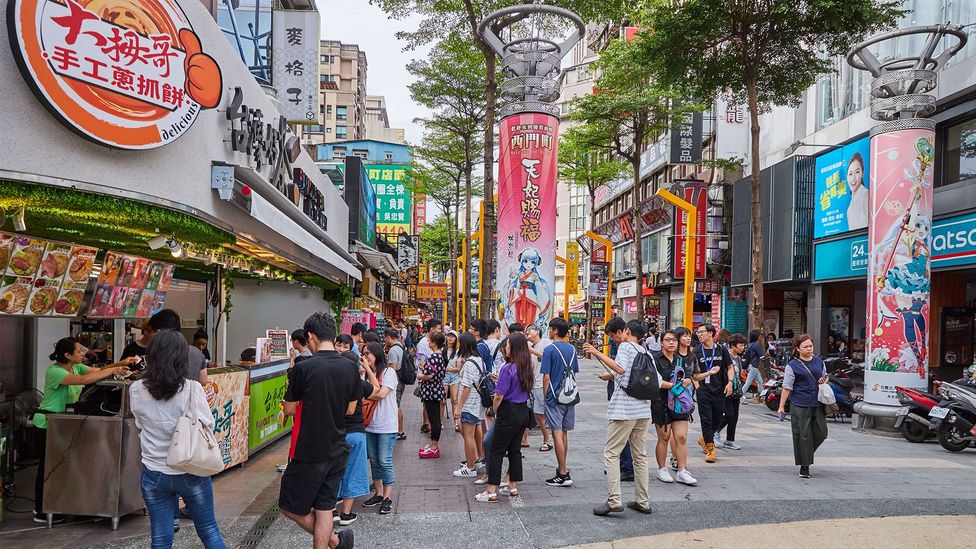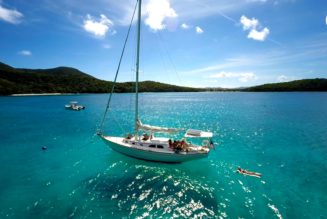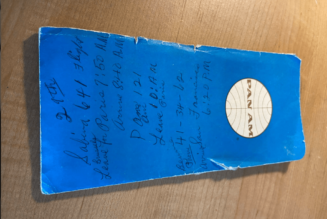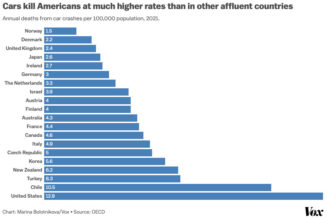Liverpool for London, Paros for Santorini and Curacao for St Martin. Destination dupes are one of 2024’s biggest travel trends, according to travel tech company Expedia, with travellers eschewing popular destinations in favour of lesser-known, more budget-friendly options that offer similar experiences without the costs and crowds.
Across the world, travel has seen a massive bounce-back after the pandemic. With air passenger traffic reaching nearly 95% of pre-pandemic levels in 2023, many destinations are now charging some sort of tourist tax to help address fears of overtourism.
Enter: destination dupes, or duplicates. These lower-budget, less-crowded destination “twins”, are being shared via social media and helping to lure travellers off the beaten path.
Lavina Dsouza, a creator based in Leeds, UK, began travelling to dupes long before the term was coined. “I was randomly searching for destinations similar to Brugge and ended up in Ghent. When I did eventually visit Brugge, it was extremely crowded and I realised I had ended up having a better time in Ghent,” she said.
Over the years, Dsouza has also gone on to travel to Palawan in the Philippines (a dupe for the Maldives, according to Expedia) and Liverpool (a dupe for London, from the same list).
Janavi Iyer, a traveller from Vadodara, India, said the dupe trend continues to rise in popularity, revealing that as she researched more affordable, less crowded beach vacations, she decided Turkey’s Bodrum coast would be the perfect stand-in for over-touristed St Tropez. “We live in an age where there’s no off-season for travel, and so this is the best way to plan your holidays, as it combines affordability, authenticity and lets you escape the crowds,” she said.
According to Expedia’s list, popular dupes worldwide include Taipei instead of Seoul, Perth instead of Sydney, Pattaya instead of Bangkok, Palermo instead of Lisbon, Quebec City instead of Geneva and Memphis instead of Nashville.

Destination “dupes” are lower-budget, less crowded locations luring travellers off the beaten path (Credit: Getty Images)
Melanie Fish, the chief trend tracker for Expedia Brands, said dupes are like cheaper versions of luxury brands. “[They] are destinations that are a little unexpected, sometimes more affordable, but every bit as delightful as the tried-and-true places travellers love,” she wrote in the company’s report.
Expedia also reported a prominent rise in searches over the past year for destination dupes, with global searches for the top five destinations on Expedia’s list more than doubling year over year. Searches for Taipei surged 2,786% globally, while those for Pattaya rose 249%. Flight searches to the other dupes also jumped: 185% for Curaçao, 109% for Perth and 97% for Liverpool.
Dsouza said travelling to a dupe destination is better because “not only is it cheaper, but the lesser crowds help get a sense of the place without rushing and spending too much”.
“Visiting the underground river in Palawan will be one of my most memorable activities ever,” she added. “Liverpool took me by surprise as the museums are enormous and stays non-pricey. In addition, you still get the same weather and food if it’s within the country!”
Helen Barber from Sheffield, England, has travelled to a dupe in the past and would definitely consider it again. “I like a sense of adventure and discovering new delights. These destinations often tend to be much less busy, have fewer queues, are cheaper and often have a sense of greater authenticity of culture,” she said.
As costs continue to rise, dupes become even more attractive. According to Forbes Advisor’s 2023 projections, a three-day vacation for a family of four cost an average of about $4,000 (£3,160). Round-trip flights to Europe that year were 32% more expensive than in 2022.

A Skyscanner study showed that 93% of travellers would consider a dupe, with 64% motivated by savings (Credit: Getty Images)
A 2023 study by Skyscanner revealed that a whopping 93% of travellers would consider a dupe destination, with about 64% revealing that the savings helped them decide. Skyscanner’s dupe recommendations include Belfast (instead of London), Girona (instead of Barcelona), Krakow (instead of Rome) and Seville (instead of Madrid).
“These locations, be it islands in Thailand or the Indian Ocean, are just as trip-worthy as their popular doppelgangers far away, but cost less and offer many more varied experiences,” Iyer said.
Rikant Pittie, co-founder of travel tech company EaseMyTrip, believes that the destination dupes trend ultimately fosters a “mutually beneficial scenario for both destinations and travellers, enhancing the overall travel experience with the scope to positively impact local economies and promote sustainable tourism practices”.
He added that data from their site revealed that travellers making bookings have shifted from destinations like the Maldives to the Seychelles and Lakshadweep, from Thailand to Vietnam and from Dubai to Saudi Arabia. “This shift reflects changing preferences and interests among travellers to explore similar destinations,” he said.
Perhaps it’s time to visit Fontainebleau instead of Versailles, Lake Maggiore instead of Lake Como, and the Faroe Islands instead of Iceland.
—
Join more than three million BBC Travel fans by liking us on Facebook, or follow us on Twitter and Instagram.
If you liked this story, sign up for The Essential List newsletter – a handpicked selection of features, videos and can’t-miss news delivered to your inbox every Friday.









